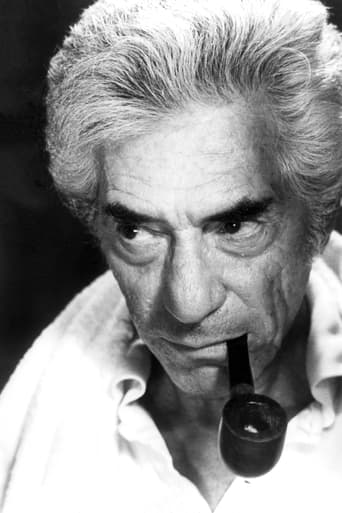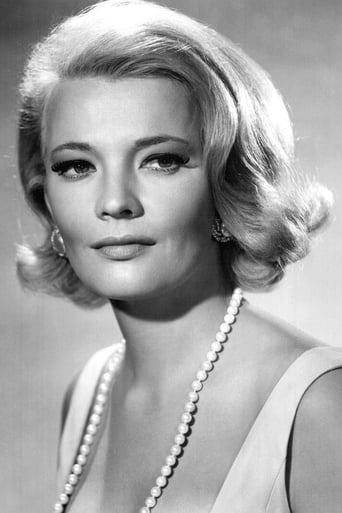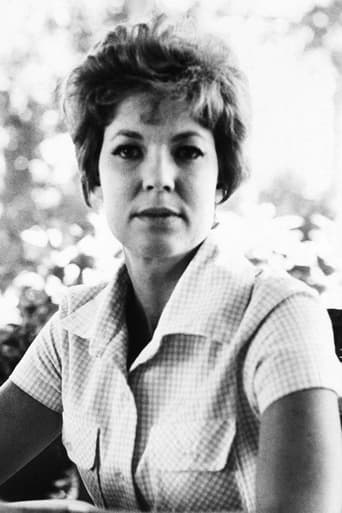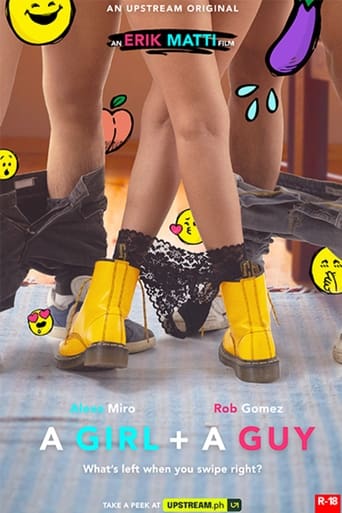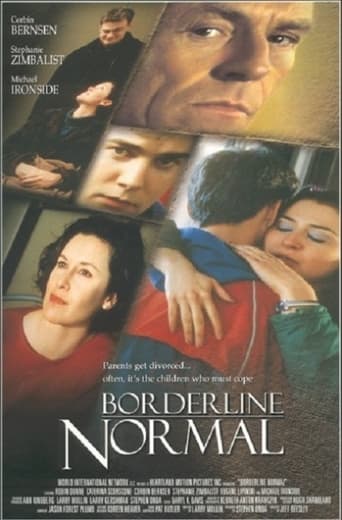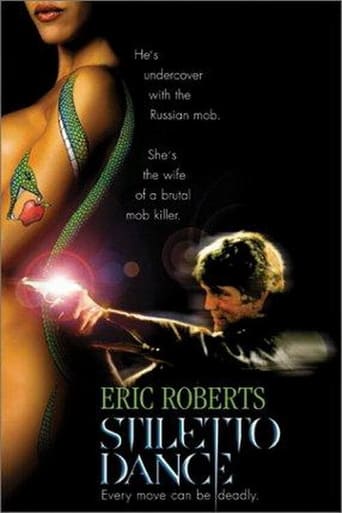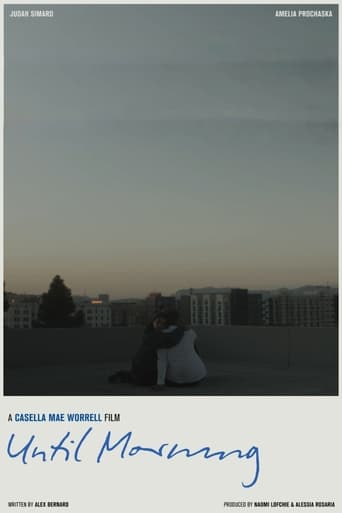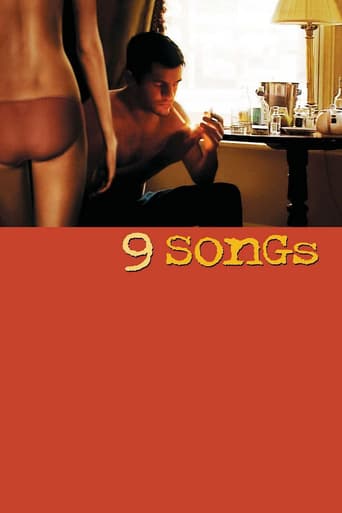
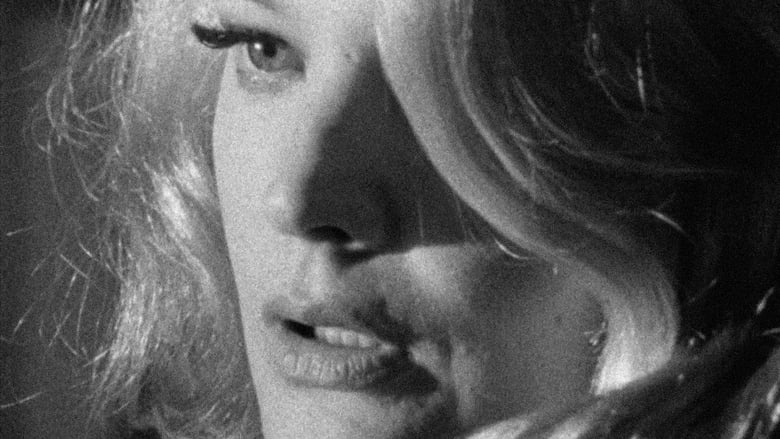
Faces (1968)
Middle-aged suburban husband Richard abruptly tells his wife, Maria, that he wants a divorce. As Richard takes up with a younger woman, Maria enjoys a night on the town with her friends and meets a younger man. As the couple and those around them confront a seemingly futile search for what they've lost -- love, excitement, passion -- this classic American independent film explores themes of aging and alienation.
Watch Trailer
Cast


Similar titles
Reviews
So this is the work of John Cassavetes? Pretty good, I must say. I definitely can appreciate good conversations and witty dialogue any day.This film, I would say is another one of those indie films (sort of foreign-filmmaking- esque) from how it is much ado about NOTHING. I love these films. They are like a breath of fresh air. That, and they always seem so personal. I wonder if it was actually scripted or if it was improvised like most Cassavetes projects.The only work I have seen of Mr. John Cassavetes was his depute film, Shadows, which was mainly all improve, or so he says in his interviews. I take a strong liking to these films because of how slow they are, yet SO INVITING; so UN-American, if you will. - People have said that Cassavetes brought the indie film movement to the states. So far I have not been proved wrong so far. His films, such as Faces, are all so unique and timeless. Like literally, I believe this movie will be studied until THE END OF TIME.I like seeing people celebrating. It is nice. Gives one the feeling of calmness; like nothing extreme is happening so we don't have to waste any time stressing about it. Does that make sense?Our main protagonist, Richard Forst (played by John Marley), is a (so called) businessman who has an affair with a much younger woman. Little does he know that his wife has some plans of her own.. You can really tell what kind of man Robert is when he says:"I'm just a mild success in a dull profession, and I want to start over again. And I've got a bad kidney!"This just shows what kind of person he is as he says it to the younger girl, Jeannie (played by the beautiful Gene Rowlands).I really like the acting and love the struggles and conflict that this husband and wife go through. Both are trying to find happiness in so many ways, but is only making it worse for themselves. .-- Michael Mendez
The American Dream, from the '60s standpoint, was supposed to be a fantasy lived by Lucy and Ethel and the Bradys. But "Life", "Vanity Fair", and "Photoplay" tended to stretch the truth for the sake of eye catching imagery, all red lipstick, picnic baskets, Ford convertibles, and not much else. And while Debbie Reynolds and Dick Van Dyke told us how we should be looking, acting, feeling, the rest of the world shifted in its mindset, going from years of repression to a sudden soul searching state of disillusion, increasingly thrown off course by the sexual revolution, Vietnam, and Watergate. I'm sure some of the period's population was decently happy, but a time of changed attitudes and values can only lead sights and sounds into places unexplored before, unsatisfying at their revelatory peaks."Faces", a defining film in the astonishing breadth of the daring '60s, grabs The American Dream by its lapels and throws its ideals down a life-sized paper shredder, screaming in our faces that Doris Day and her well-off friends lied — adorable romantic misunderstandings and colorful lifestyles is not the America America knows. It's just a drippingly chintzy version of one. So with its grainy, 16 mm black-and-white, emotive actors, and innate directorial style (courtesy of auteur John Cassavetes), "Faces" is one of the few films that convincingly captures the hardships that lacerate everyday life, placing each and every one of its characters at the center of a crisis and watching, unsparingly, how they handle it.Following the disintegration of a fourteen year marriage over the course of a series of drunken nights, "Faces" examines Richard (John Marley) and Maria Forst (Lynn Carlin) as they attempt to navigate their loose vulnerabilities after Richard suddenly announces he wants a divorce. The proclamation makes perfect sense to Richard — he's been cheating on his wife for years (the film opens with a boozy get-together that sees him and his friend entertaining a couple of prostitutes) — but the exclamation nearly tears Maria in half. Though she's been unhappy for far too long, there's an underlying feeling that she really does love her husband, and while the union has run its course, she doesn't want to be alone in this cold, cruel world.They spend the next few nights figuring out what's going to become of them, growing increasingly depressed and increasingly retrospective, pensive. Richard busies himself attempting to shack up with a hooker without a heart of gold (Gena Rowlands), Maria fogging out her loneliness with her female friends, gradually meeting a hippie (Seymour Cassel) well-meaning but damaging in his unrelenting positivity. By the end of the film, the Forsts don't find themselves freed by their lack of marital responsibility — hanging over their heads is a question mark drenched in sleeping pills and liquor, wondering aloud if all there is to look forward to in life is misery."Faces" isn't the kind of film made for the pure sake of enjoyment — most, including me, would much prefer to sit through a two-hour Bond adventure than a depressing, jarringly styled character piece — but its blunt truthfulness and knee-jerking performances make it a tour-de-force rewarding in its mesmerizing account of a world more authentic in its bare bones anguish than most. Never has Cassavetes settled for anything less than honest, so it's only fitting that the majority of his films throw his characters into a pit of chaos and sees where they land. In his most famous moment, "A Woman Under the Influence", he details the dissolve of a housewife's psyche, taking her marriage down with her; in "Love Streams", he throws curveball after curveball at characters so lost in a maze of depression that it's only reasonable to predict that they'll never make their way out."Faces" is the movie that first bolded and underlined his filmmaking style, pulling out massive emotional punches and drawing out visceral performances from his stock of actors. His movie-making instincts are difficult to love at first glance — but after getting to know the situation and the people, the shaky camera, documentary-like, heightens the gutsiness of it all, adding to the dire circumstances that befall nearly every scene. As we analyze the ensemble of "Faces", split in half most of the time, a sense of impending doom slithers along the cracks of the ceiling. None of these characters are stable, so much so that we can only ponder if they will die naturally or if they will inflict wounds upon themselves to make their demise come quicker. The women of the film, Rowlands and Carlin, cover their sorrows with fake laughs and unconvincing smiles; Rowlands makes the case that her character has always been that way — she plays a prostitute, therefore used to irrepressible gloom — but Carlin goes on a downward spiral resembling Monica Vitti's mental deterioration in "Red Desert", absorbing but absolutely gut wrenching. The men, Marley and Cassel, seem more in control: but it quickly becomes apparent that their masculinity can only cover so much ground before their weaknesses begin to present themselves loudly.At 147 minutes, "Faces" is demanding to sit through, sometimes tedious. But, like in all of Cassavetes' movies, there is so much depth to the lack of glamour that we're left torn up, perhaps longer than we'd like to admit. Because the Technicolor world isn't real — the 16 mm one is, and it's hard to accept.
Faces, by John Cassavetes, is a 1968 film generally credited as being the first popular independent film in America to make an impact in the public consciousness. But, it is more than that. It is a film that totally subverted the dominant themes and forms of Hollywood cinema, at the time, showed that 'adult' films, truly adult, not a euphemism for pornography, could have mass appeal, and paved the way for the great auteur decade of American film-making that was the 1970s. That things have regressed severely, since then, only shows how much a young Cassavetes is needed these days.But, it was totally different from the European auteur films of the 1960s, in that it eschewed symbolism, framing, and Post-Modern techniques of storytelling. Faces is a raw film that is laced with searing, realistic dialogue, and gives the impression that the viewer is truly eavesdropping on the private lives of people who could be them, for there are no Hollywood goddesses nor buff Adonises to be found in any scenes. And, unlike a master like Ingmar Bergman, who also focused on the inner emotional and psychological lives of individuals, Cassavetes' characters are not philosophizing nor posing in neatly framed boxes. This is not so much a criticism of the European poetic approach to film, merely to state that Cassavetes' style was far more revolutionary, and felt like actual cinema verité. In that sense, while one can argue ceaselessly over the relative excellence of certain directors, it is impossible to deny Cassavetes' importance in the pantheon of film's first century.Nor can one deny Faces' importance, at least as a landmark, if not having lasting influence in Hollywood's Lowest Common Denominator output. The film follows the demise of the fourteen year marriage of Richard and Maria Forst (John Marley and Lynn Carlin), two LA suburban children of the post-World War Two boom, at the height of American affluence, just before Vietnam, Watergate, and the 1970s allowed the Conservative movement of the 1980s send standards of living into a spiral that has yet to stem. Why are they breaking up? We are never directly told. He's the head of a large company, and she a bored housewife, and while they still have things in common, and enjoy each other- as shown in a terrific scene of the couple in bed, laughing their heads off over lame jokes Richard tells, their marriage has just died. Neither could probably pinpoint where, much less why. But, the fact that they are still chuckling over the most inane jokes, just to please one another, says it all about most relationships- that they almost all end up as zombies. That's what makes this film so real, potent, and discomfiting. Contrast this to the Hollywood paradigm of the mid-1960s, Doris Day comedies, when the film was first started, and the difference is stark .But, the real stars of this film are the writing and acting. Cassavetes reaches Chekhovian heights of drama, admixed with Tennessee Williams' poetic realism, in his Oscar nominated Best Original Screenplay. It is truly among the greatest screenplays ever written, even if, as rumored, there was much improvisation in the dialogue. Here, for one of the few times on screen or stage, one gets to see the actor as creator, not merely collaborator. Lynn Carlin, in her first film role, is authentic as the clueless abandoned wife, and got an Oscar nod for Best Supporting Actress. Seymour Cassel, as he lover, is also fantastic, as a gigolo with a soft side, and also got a Best Supporting Actor Oscar nomination. Gena Rowlands, as the prostitute, is neither victim nor saint, just a real person struggling with real problems, and gives her usual great performance, as one of the great actresses of all time in film. But, this film is dominated, from start to finish, by the towering performance of John Marley. How many of us have worked for a son of a bitch like him? How many women know a bastard like him? How many men reading this are a Richard Forst? The supporting actors- Fred Draper as Richard's drunken pal Freddie, Val Avery as the drunken Jim McCarthy, Dorothy Gulliver as Florence, the old lady Chet deigns to kiss, when she drunkenly pleads for affection- are uniformly terrific, as well.The title of the film is based upon the notion that we all act in ways that are mere role playing for others, mere faces, and this has never been more true than in this film. A more apt title, though, might have been Personae, but since Bergman's singular Persona had recently been released, to great acclaim, this title suffices. No scene better and more aptly depicts why it suffices than in the terrific, nearly twenty minute opening scene, after the title sequence, which hints at the fact that, as Bergman was doing in that era, this film may all be a film some of the characters are watching, as a presentation to Forst as 'the Dolce Vita of the commercial field.' That this meta-narrative aspect has not been commented on by many critics I find curious, but understandable, since no more than two or three minutes into the nearly twenty minutes that follow, we are given a bravura performance of drunkenness never before equaled, for its realism, on screen. The strengths of this film are so many and so potent that things that in other films that would be weaknesses, such as fashions and dated slang, become strengths for this film has not dated. Its characters are as fresh as they were four decades ago, even if the film, itself, serves as a time capsule of the 1960s, yet one that is timeless.
This was a marvelous movie to watch. It is so intelligent and informed most of the time, it is hard to believe there were improvisations by Cassevetes and company.Although themes such as those which the movie revolves around were already then considered Bergmanesque, the movie evokes the spirit of other great non-Hollywood directors of the era: Fellini and Antoninoni. Still it retains its integrity and is rather unique. I think that it is a very impressive film even today. Puts many to shame.NSFC did the right thing in awarding the film with Screenplay and Supporting Actor honors. Oscars on the other hands were not so generous. It did not get a nod for best picture nor did Cassevetes for best directors. What a shame! Since Stanley KUbrick's 2001 A Space Odyssey was snubbed the same year, making it a double debacle.


